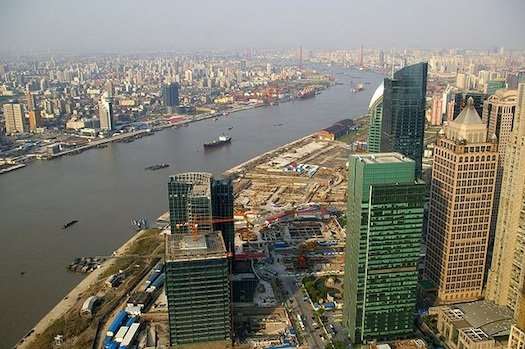Australia’s innovation and regional growth potential is being hampered by risk-averse, short-term thinking, according to Seek co-founder Andrew Bassat.
While other firms in the “increasingly global marketplace” were being afforded opportunities to solve large challenges over longer time scales, Australian companies – with a handful of “terrific exceptions” – mostly found themselves solving incremental problems.
Bassat said he held “genuine” and “grave” concerns that Australia isn’t doing enough to overcome its short-term thinking problems.
“I think the biggest risk now in a disruptive age is doing nothing or not doing enough,” Bassat told CEDA’s state of the nation conference in Canberra.
“Boards and companies need to just put their necks out a bit and take a risk, recognising they’ll come unstuck occasionally if things go wrong, but if they’re willing to cop the public criticism that always comes with missing short term numbers and explain this is part of a long term plan so that the timeframe is articulated to the marketplace, [change and acceptance is] possible.”
Bassat believed risk aversion among Australian businesses came from being punished for missing short-term numbers.
“There’s a whole range of problems - some cultural, some of it is the company themselves, some of it is the investor base in Australia, and they all contribute to short-term thinking,” Bassat said.
“CEO tenure - which was about five years - is coming down. Why would you even think about doing something that’s got a 5-10 year payoff like going to China or some sort of technology investment when you’re only going to be in the job another four years. You’re going to cop the pain for the investment and get none of the benefit or reward.
“There’s the shareholders who are incredibly short-term focused in Australia. There’s some really good exceptions, we’ve managed to find them over time but so many of them want to talk the short-term numbers and nothing else. The conversation is very different with investors in Australia compared to the investors I speak to in Asia or elsewhere overseas.
“There’s [also] a culture [against] failure in Australia. You can’t innovate or take risks without failing occasionally but if you’re going to get murdered by the media or fired from your job as CEO or if you’re going to be heavily criticised for doing so, rather than realising that’s part of risk taking, then why do it?”
Bassat noted he had a somewhat fortunate position in being able to drive the direction of Seek that may not be available to a CEO with less runs on the board.
“It’s much harder for a new CEO that needs to prove him or herself by delivering on what the market expects in the next half,” he said.
However, he believed it was more important to worry about the long-term future of the company he led rather than his own tenure there.
“I really genuinely don’t care about my tenure – it’s about Seek being great ten years from now, whether I’m there or not, that is what I think about,” he said.
While short-term thinking was closing the door to innovative thinking, Bassat was also concerned about Australia missing its opportunity to win in Asia.
China, he said, already surpassed the revenue of Seek’s Australian operations.
“Asia is really exciting,” he said.
“I think Australia actually has an advantage in Asia around proximity, time zone and around the fact that we tend to go into Asia much more hungry than the US or European competitors that go in assuming that Asia is one market … and assuming [they] are much smarter than the Asians; and we’ve got a lot of people who’ve got experience in the Asian markets.”
However, Bassat believed the window of opportunity for Australia in Asia was closing fast.
“We’ve got a narrow window where we can really go in there and secure footholds before the Americans and Europeans, particularly in the technology space, get better at competing in Asia,” he said.
“We’re just not doing it now with enough aggression.”










